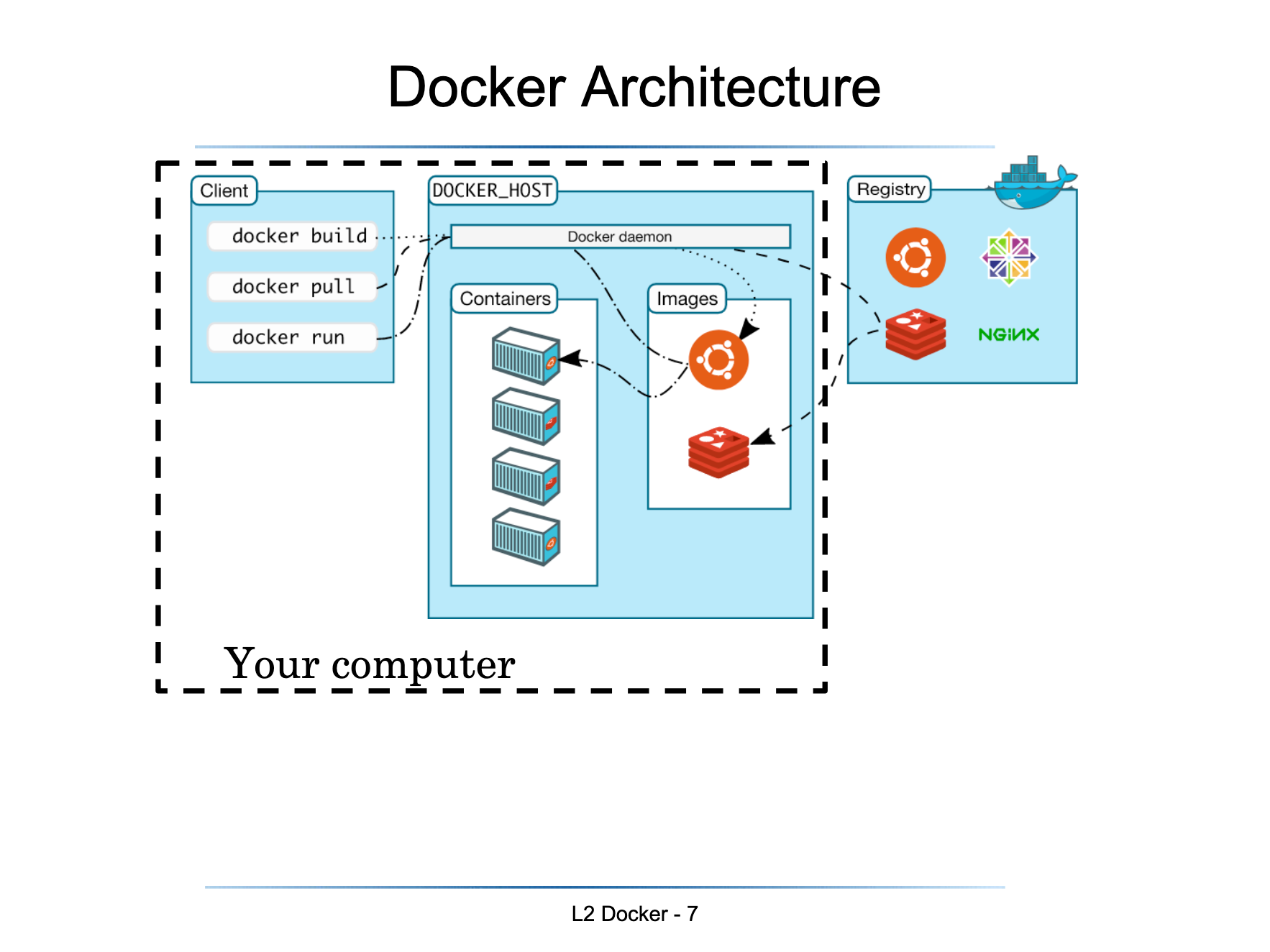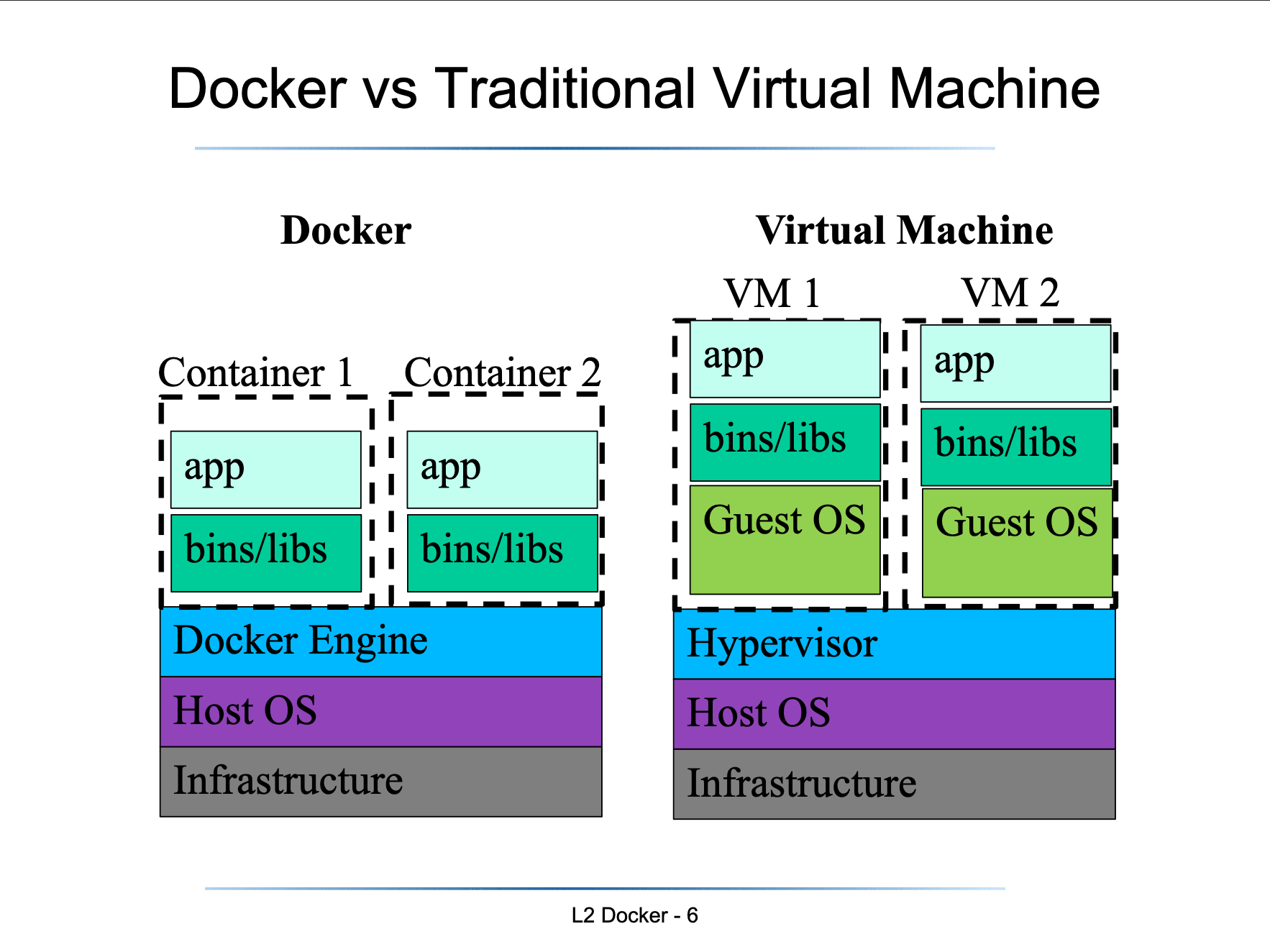Docker is kinda like Git. A really solid core concept with just enough surface inconsistencies to be annoying but not enough for a better solution to take the crown.
Docker is a system for running virtual machines called containers.
Advantages of Docker
- provides consistent, contained environment on your local machine
- containers are lightweight, portable, and boot fast
- useful for hardware agnostic software Development
- can be used for non-interactive application execution
Comparison to Traditional VMs
- docker containers are stateless, container storage is erased when the container stops (mapping drives can resolve this)
- uses OS-level virtualisation, so containers share the host OS without needing a Hypervisor
- smaller and faster than VM
- docker platform can run many containers simultaneously and they can communicate with each other
- docker registries allows straightforward deployment of docker images
Architecture
- Client - CLI interface
- Daemon - background service that listend for API requests and manages docker objects
- Docker desktop - manager for other components
- Docker registry - a package repo, docker hub is the default
- Docker objects
- image is a read only template for container
- container is a runnable instance of an image


Running
docker run \
--mount type=bind,source=HOST_PATH,target=CONTAINER_PATH \
-it IMAGE:TAG
mountsets an folder on host to folder in container- use absolute folders
itallows interactionTAGis the version of the image